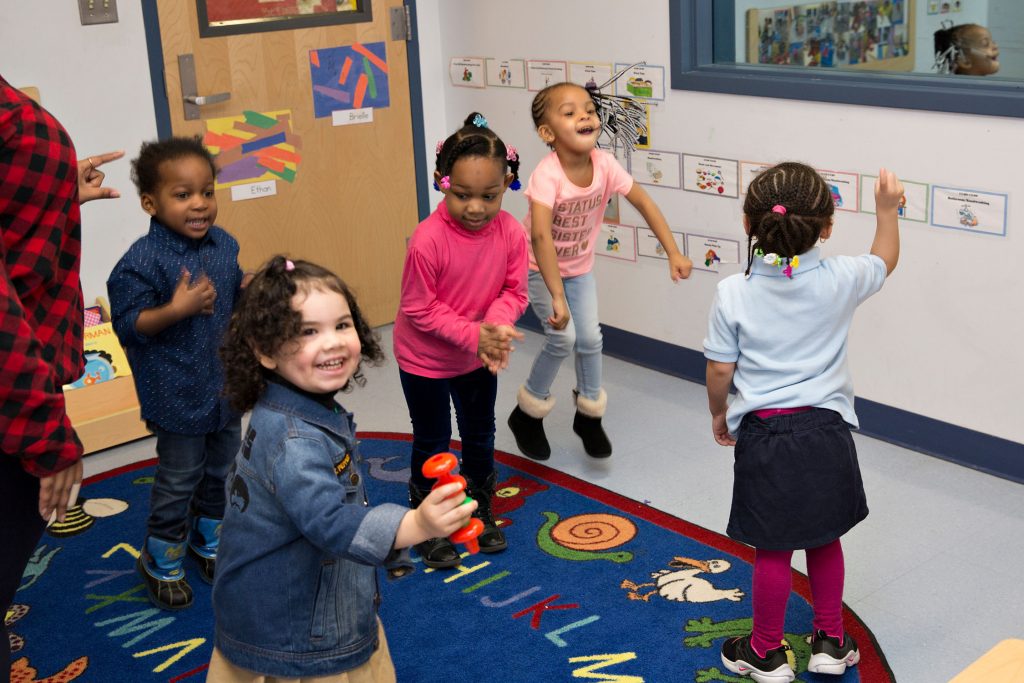As early childhood educators, we know that our work lays the foundation for lifelong learning, development and success. We see firsthand that quality programs, adequate resources, and supportive policies can have real impact on children, families, and communities. When we have the opportunity to speak up for those who may not be able to speak for themselves, we can bring attention to the needs of the children and families we serve.
For early childhood educators who are interested in advocating for policies and resources that support young children, the Institute’s Early Childhood Leadership Initiative hosted a conversation on Dec. 4 about how to get started. The Western New York and Finger Lakes regions of the Leadership Initiative hosted the discussion, which was moderated by Rachel Bonsignore, the director of Liftoff WNY.
Brigit Hurley, the chief program officer at the Children’s Agenda in Rochester, described attending county legislature meetings in 2016 and hearing a “stream” of parents testify about their young children with developmental delays and disabilities. “That set us on the road to forming a large statewide coalition working on issues in the Early Intervention and preschool special education systems, firmly centered in kids’ needs,” she said.
For example, the Children’s Agenda’s Kids Can’t Wait campaign is working with Early Intervention service providers, pediatricians, elected officials, and others to achieve a rate increase for EI providers. “Why are we, as children’s advocates, working on a rate increase for providers? Well, because New York is 50th in the nation for timely delivery of EI services because of a shortage of providers, so we need to focus on recruiting and retaining more providers,” she explained.
Shoshana Hershkowitz, the campaign manager for the Empire State Campaign for Child Care, noted that the Empire State campaign successfully championed an expansion of eligibility for child care assistance. Now, many more families are eligible for affordable child care — but many of those same families struggle to find child care because of a shortage of providers.
“We struggle with recruitment and retainment because child care providers are among the lowest earners in the state,” she said. “We recognize that the same robust investment that has been made in eligibility needs to be made in the child care workforce.”
Both emphasized that for elected officials and policymakers, hearing the voices of educators and families makes a difference in how they approach important issues.
“The power of our work comes from the voices of voters,” said Hurley, who described hearing New York State Health Commissioner James McDonald — a supporter of Early Intervention — testify at a budget hearing about a Rochester parent who had movingly described the frustration she experienced with delayed Early Intervention services. “We try to make our tools accessible to everybody because it takes everybody and everything — we welcome all the voices.”
Hurley noted that early childhood educators who are interested in sharing their stories can offer to meet with their own local representatives, who are typically open to sitting down with their constituents to discuss issues. To give them a sense of how important your work is, Hershowitz suggested inviting policymakers to visit your early childhood program and meet the people who make it possible.
“You’re doing incredible, impactful work,” she said.
To learn more about how to get involved, explore these resources:
- The Children’s Agenda
- Empire State Campaign for Child Care
- Child Care Advocacy Day in Albany (Jan. 28, 2025)
- Kids Can’t Wait
- Kids Can’t Wait Advocacy Day in Albany (Feb. 11, 2025)

